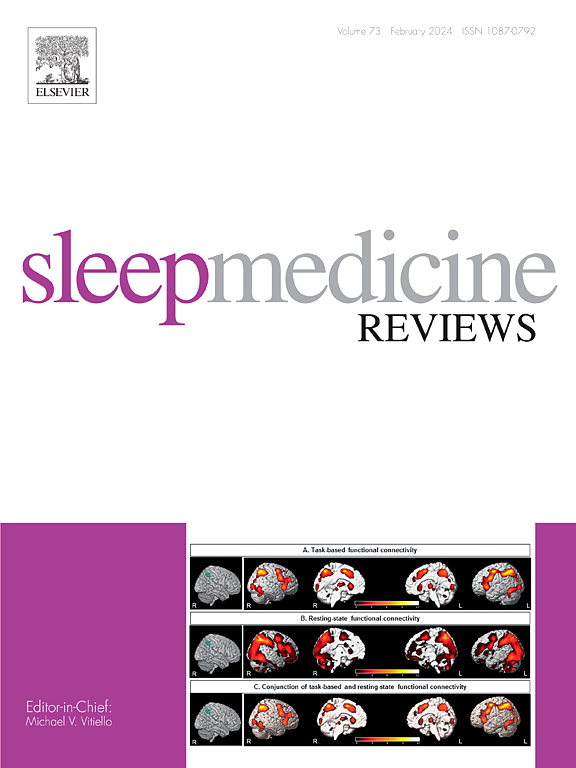A theoretical perspective on the role of sleep in borderline personality disorder: From causative factor to treatment target
IF 11.2
1区 医学
Q1 CLINICAL NEUROLOGY
引用次数: 0
Abstract
Sleep plays a crucial role in emotion regulation. Disturbed sleep is therefore increasingly seen as a potential causal factor for the development and maintenance of affective psychiatric disorders. This may hold especially for borderline personality disorder (BPD), a core emotion dysregulation disorder. Although BPD is strongly associated with sleep disturbances such as insomnia, nightmares and circadian dysrhythmia, research into the role of sleep in BPD remains sparse. In this narrative review, we outline a putative vicious cycle of reciprocal exacerbation of disturbed sleep and emotion dysregulation in BPD, that sheds light on BPD pathophysiology and opens up new avenues for sleep-based treatments. We discuss emotional dysregulation as the base of BPD as well as the observed sleep disturbances in BPD. Based on existing theories of sleep's role in emotion regulation and memory, we then propose several behavioral and neurobiological pathways by which inherent sleep disturbances in BPD may hamper adaptive overnight emotional processing. This likely results in sustained emotional states and associated sleep-disruptive behavior, which in turn negatively impact sleep. We end by proposing a sleep-based research agenda for BPD to further detail the causative role of disturbed sleep in BPD and test the effectiveness of novel sleep-based treatment strategies.
睡眠在边缘型人格障碍中的作用:从致病因素到治疗目标
睡眠在情绪调节中起着至关重要的作用。因此,睡眠障碍越来越被视为情感性精神障碍发展和维持的潜在因果因素。这可能尤其适用于边缘型人格障碍(BPD),这是一种核心情绪失调障碍。尽管BPD与失眠、噩梦和昼夜节律紊乱等睡眠障碍密切相关,但关于睡眠在BPD中的作用的研究仍然很少。在这篇叙述性综述中,我们概述了BPD中睡眠障碍和情绪失调相互加剧的恶性循环,这揭示了BPD的病理生理学,并为基于睡眠的治疗开辟了新的途径。我们讨论了情绪失调作为BPD的基础,以及BPD中观察到的睡眠障碍。基于睡眠在情绪调节和记忆中的作用的现有理论,我们提出了BPD中固有的睡眠障碍可能阻碍适应性夜间情绪处理的几种行为和神经生物学途径。这可能会导致持续的情绪状态和相关的睡眠破坏行为,进而对睡眠产生负面影响。最后,我们提出了一个基于睡眠的BPD研究议程,以进一步详细说明睡眠障碍在BPD中的致病作用,并测试新的基于睡眠的治疗策略的有效性。
本文章由计算机程序翻译,如有差异,请以英文原文为准。
求助全文
约1分钟内获得全文
求助全文
来源期刊

Sleep Medicine Reviews
医学-临床神经学
CiteScore
20.10
自引率
3.80%
发文量
107
期刊介绍:
Sleep Medicine Reviews offers global coverage of sleep disorders, exploring their origins, diagnosis, treatment, and implications for related conditions at both individual and public health levels.
Articles comprehensively review clinical information from peer-reviewed journals across various disciplines in sleep medicine, encompassing pulmonology, psychiatry, psychology, physiology, otolaryngology, pediatrics, geriatrics, cardiology, dentistry, nursing, neurology, and general medicine.
The journal features narrative reviews, systematic reviews, and editorials addressing areas of controversy, debate, and future research within the field.
 求助内容:
求助内容: 应助结果提醒方式:
应助结果提醒方式:


